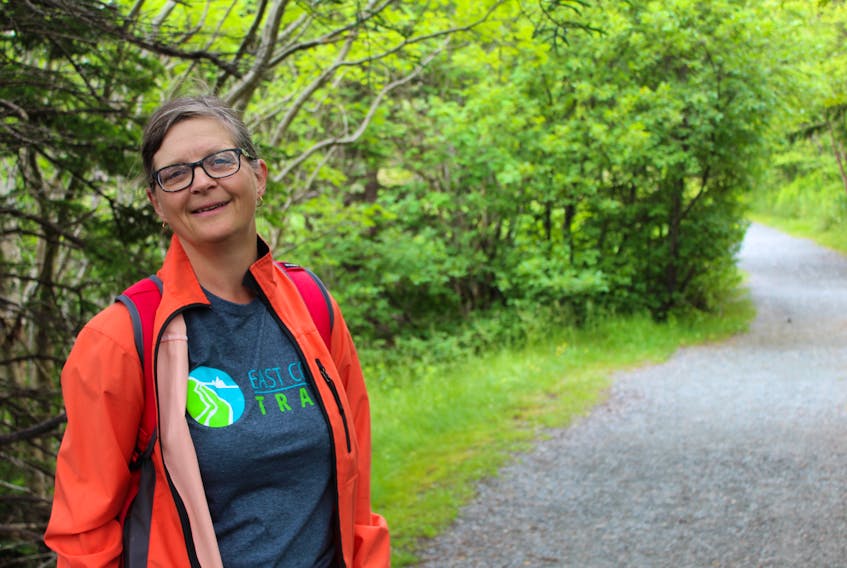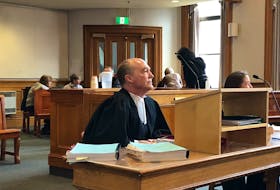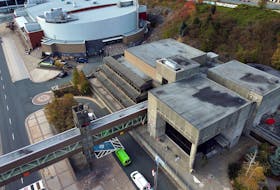The reinvigoration of rural areas of Newfoundland and Labrador in recent years has inspired a new ecotourism venture — in Chile.
Foothills Hiking Chile operator Elizabeth Noseworthy is a retired teacher from Mount Pearl who has started the ecotourism hiking packages in her new home of Puente Negro, in central Chile.
“We’ve done a good job here in Newfoundland in some communities,” said Noseworthy, mentioning areas such as Bonavista and Fogo Island.
“They’ve really saved their communities through tourism.”
In an area of Chile that faces struggles similar to those in rural Newfoundland, she hopes to do the same.
Noseworthy spent most of her adult life working as an English as a second language (ESL) teacher and curriculum development specialist, both in this province and around the world. Her work took her to Vietnam, Qatar, Mexico and finally Chile.
She met her partner, José Inostroza, while hiking in Chile. About three years ago, the pair thought about starting an ecotourism venture in the small community of Puente Negro, where they live.
“We began hiking around the old roads and up the hills and the trails, and the more I was hiking around there, the more I thought, ‘Wow, I think people would love to come here.’ It’s a beautiful area.”
The community has fewer than 1,000 people, who are mainly employed in agricultural work.
Noseworthy said that much like rural Newfoundland, more young people are leaving the community to attend university. Teenagers and young adults are choosing city life in places like Santiago, and there are a lot of seniors living in Puente Negro.
“Things are changing. I think the economy’s changing, the look of the place is changing.”
Much like Noseworthy sees areas of Newfoundland and Labrador being “revived with tourism,” she noticed the same thing happening in villages in Spain when she and Inostroza went hiking there recently.

The couple started talking about doing a similar thing for their community about three years ago, and their plans came to fruition this year.
“Sometimes people will come through (Puente Negro) just to stay for one night, but as I was walking around … thinking about all the things they had to offer, I realized, boy, I think a lot of people would like to come here and spend a week.”
The pair approached local small businesses about offering their services as part of an ecotourism hiking package for tourists age 50-plus. Soon, the couple had planned more than enough activities to fill a week-long vacation.
“There’s lots of potential in small communities,” said Noseworthy.
“For example, in Puente Negro, there are several guys who are offering horseback riding, there are a number of wineries in the area, there’s a folkloric group and they sing and dance and play music, and there’s a lady who has a restaurant there — she’s a really good cook, and she has a beautiful, big, new kitchen. So, we integrated all those things into the package.”
They hosted their first hiking group in March this year — it was comprised of tourists from this province and Nova Scotia. Noseworthy said it was a great success.
Like any success, it was the result of much planning.
In the months leading up to March, Noseworthy offered English conversation classes to help local people communicate with the tourists. While it was geared toward the people whose businesses were a part of the Foothills Hiking Chile package, the classes were so sought-after she ended up organizing them for multiple groups.
As well, the couple initiated a recycling program in the community. It started with one bin in their own neighbourhood that accepted plastics, and it has since grown to four large bins in the community, and they can now also recycle tin and glass.
She said it all goes to show that if you initiate something, people will follow through.
“For us, it’s a project to help the community. We’re retired, so we have pensions and whatnot. People 60 years and over may be retired, but they still have a lot to contribute — you have to bring together all of your experience, and there’s a lot you can give back to the community.”
She hopes their efforts will encourage younger people to stay or return to the community, and boost the local economy.
Foothills Hiking Chile is taking bookings for March 2019, but is also willing to book groups outside of March if four to six people are planning to travel there together.
Anyone interested in booking a package can learn more at www.foothillshiking.com.
“There’s lots of room for new initiatives in Chile, and I’m sure here, too,” said Noseworthy.
“You just have to think of it and do it.”
Twitter: @juanitamercer_









